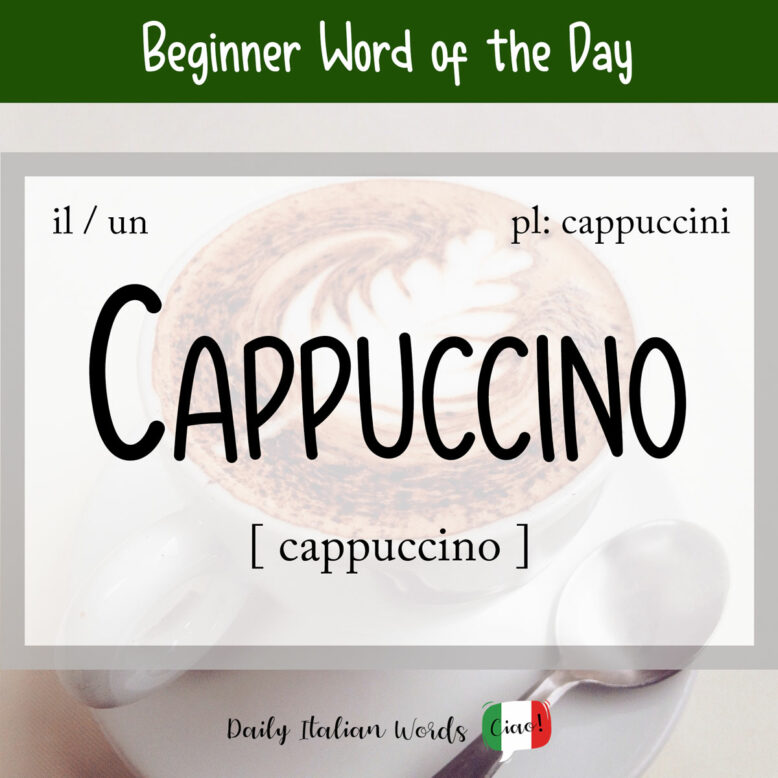The cappuccino is a hot drink of Italian origin consisting of coffee and milk that has been frothed up with pressurised steam. It is traditionally consumed with sugar at or following breakfast, accompanied by a cornetto (croissant) or other baked goods.
A cardinal rule of Italian coffee drinking is to never order a cappuccino or any other milk-based coffee after noon, and especially not after dinner. Doing so is basically the same as holding up a sign that says “I’m a foreigner!” This is because Italians believe consuming dairy after a meal will wreak havoc on your digestion – and who knows, they may be right!

Origin of the word:
The word cappuccino takes its name from the Capuchin friars of the Franciscan order, founded in Italy in the 16th century. The colour of the brown espresso mixed with frothy white milk was thought to resemble to the colour of the simple brown robe the Capuchins wore. It included a long, pointed hood called a cappuccio, which is still the Italian word for a hood even today. It was later borrowed into the English language in the late 18th century.
Learn with our video
How to pronounce ‘cappuccino’ in Italian
To be completely honest, the way English speakers pronounce cappuccino isn’t so different from the authentic Italian pronunciation. The biggest difference is that English people fail to properly pronounce the double consonants. In the word cappuccino, it just so happens that there are two: pp and cc.
When you see a double consonant, the key is to pause for a split second while holding the consonant for a bit longer than usual. Have a listen to the pronunciation:
<< CAPPUCCINO >>
/kapːu’tːʃino/

Il cappuccino è una bevanda molto amata in Italia.
The cappuccino is a very popular drink in Italy.
Cappuccino is a masculine noun. To form the plural, just drop the final o and replace it with an i to make cappuccini.
Did you know that…?
The Capuchin monkeys of South America are commonly referred to as scimmie cappuccine in Italian due to the similarity between their fur and the robe worn by the Capuchin friars.

This article is also available in video format on our YouTube channel. The audio version can be found on Podbean, Google Podcast, Apple Podcast and Spotify.
Heather Broster is a graduate with honours in linguistics from the University of Western Ontario. She is an aspiring polyglot, proficient in English and Italian, as well as Japanese, Welsh, and French to varying degrees of fluency. Originally from Toronto, Heather has resided in various countries, notably Italy for a period of six years. Her primary focus lies in the fields of language acquisition, education, and bilingual instruction.


